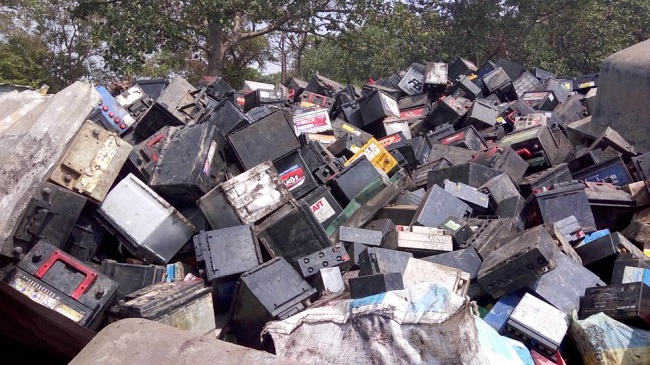Prof. Yinusa Adediran of the Department of Electrical and Electronics Engineering at the University of Ilorin in Kwara State has advocated for battery legislation in Nigeria for safety use and disposal.

Adediran made the call in his research paper titled: “In the realms of telecommunications, reliability and quality engineering”.
He stated that such law would mandate manufacturer and major importers to put adequate measures in place for collecting spent lead-acid batteries and educate the consumers on the safe method of disposal after its useful life.
The don, who teaches in the Faculty of Engineering and Technology at the university, observed that spent lead-batteries were being managed in an unorganised method similar to what was obtained in other developing countries.
“The battery scavengers move from house to house to collect the spent batteries.
“Majority of them buy large quantities of spent batteries from the technicians and transport them to scrap battery dealers who store the batteries until reasonable quantities can be accumulated for sale to the secondary smelters for breaking and recycling.
“Reasonable numbers of spent batteries are seen on corridors, lawns and in garages which eventually get dumped in the trash containers,” he said.
Adediran said his research showed that neither the companies producing lead-acid batteries nor the battery distributors informed the end-users about environmental risks and health hazards in improperly disposing lead-acid batteries.
He observed that the companies producing batteries in Nigeria seemed to be comfortable with the current environmental policy since it gave them opportunities to operate freely and make maximum profit without any take-back commitment.
The expert in engineering reiterated that the legislation regulating hazardous waste through the establishment of Ministry of Environment appeared to be appropriate, but the enforcement was not there.
According to him, attention was rather focused in oil spills and toxic waste discharges.
“There is no local law that strongly drives proper disposal of spent lead-acid batteries in Nigeria.
“Among the shortcomings are lack of accurate record of numbers of registered vehicles, tonnage of lead-acid batteries imported to Nigeria, improper disposal of lead-acid batteries and lack of adequate record of tonnage of lead-acid batteries manufactured annually.
“There is also seeming lack of full government participation in funding recycling plants in Nigeria,” he said.
Adediran, therefore, urged engineers to assist the government and increase their skills as their social responsibility was to the environment in which they practiced.
He urge the government at all tiers to provide enabling environment for medium and small scale enterprises (MSMES) so that they could add value to the abundant raw materials and process them to industry use grade.
By Fatima Mohammed-Lawal
